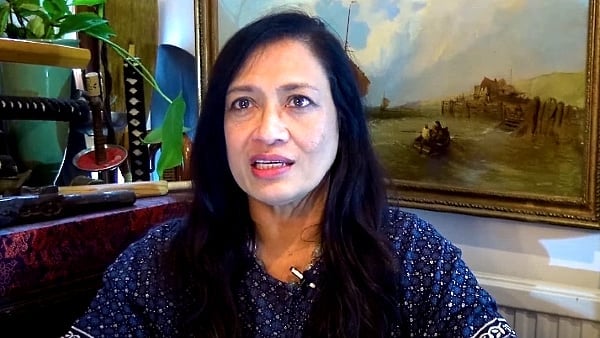
The Democratic Action Party’s collapse in Sabah was not a fluke. It was a verdict. A cold, unmistakable judgment delivered by voters who once believed the party stood for something braver, cleaner, and sharper than the ordinary machinery of Malaysian politics. We know it and the DAP leadership know it too. DAP cannot survive another year of this drift, and neither can Malaysia because when a party loses all eight of its contests, including six once won with overwhelming majorities, we cannot call it a setback. It should call it what it is: a public repudiation. It was humiliating. DAP Secretary-General Loke Siew Fook’s response, which was the pledge to “compile feedback” and “accelerate reforms”, arrived with the timidity of a politician who still thinks there is time to repair a deep suppurating wound with a sticking plaster. It is pathetic. The voters did not express mild frustration. They issued a warning shot meant to shake the national political class awake. Does Loke think they were looking for another inquiry, another roundtable, another promise of acceleration? No. They were demanding something more basic, more human, and more urgent: accountability. Loke acknowledged a “strong and unmistakable message” and he stopped one step short of what leadership requires: he failed to apologise, because in politics, the failure to say “sorry”, is the presence of denial. The downward spiral of DAP began long before Sabah, and everyone, including those in DAP knows it. It didn’t require an emergency central executive committee (CEC) meeting on 1 December for the leadership to acknowledge what voters have long known and have tried to tell them thus far. For two years, the Unity Government has taken the public’s patience for granted. DAP became the face of that inertia and it was not because it held power, but because it once held moral authority. It once stood for principled resistance, fearless speech and reformist discipline. Today, it speaks softly, defensively, and with one eye permanently fixed on its coalition partners. It was respected when it was in the Opposition, today, the voters have turned their backs on the party. This is where the hard truth cannot be avoided. DAP’s collapse is inseparable from Datuk Seri Anwar Ibrahim’s leadership. This is not because he wished harm on the party, but because his leadership style made harm unavoidable. Think about it. Malaysia did not get a reformist government at the end of 2022, Malaysia got a government terrified of upsetting anyone. Sadly, DAP paid the price. This government was supposed to be a vessel for reform. Instead, it became a show-case of hesitation. Every major reform was delayed, diluted, or quietly shelved. When major issues cropped up, people looked to the DAP to speak up for them. All they received was silence. Remember DAP’s muted response to the “No-further-action” verdict in Teoh Beng Hock’s case? The Prime Minister, Anwar, cannot think he is blameless. Once a symbol of courage and governance, who carried the peoples’ hope and aspirations for […]
1 w ago
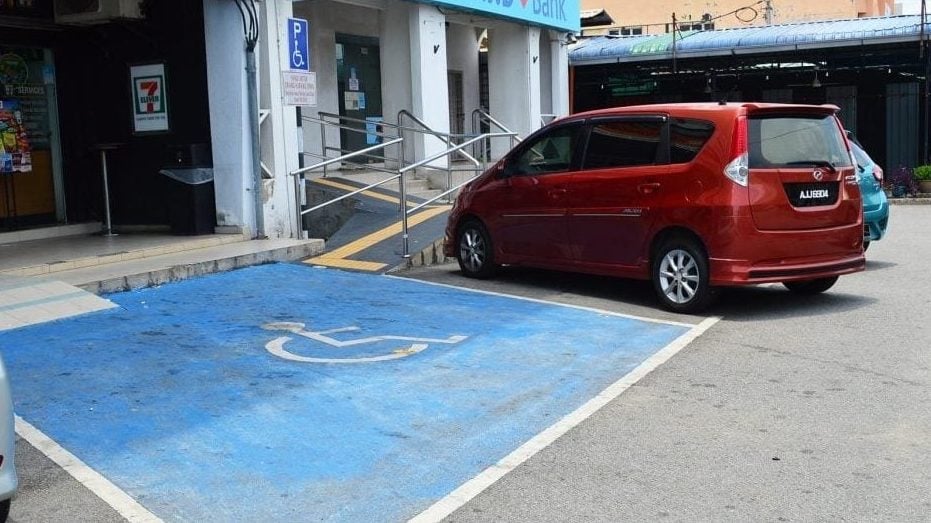
There have been a number of songs on the theme “All I want for Christmas …”. The one that has stuck in my memory is a child singing “All I want for Christmas is my two front teeth…”. A simple but vital request. As I reflect on International Day of Persons with Disabilities, celebrated on 3rd December 2025, I ask myself: “What does the disability community, their care partners and civil society want from the government and society?” Remember that International Day of Persons with Disabilities is less about celebration and more about demanding urgent, tangible, long overdue action and accountability from the authorities. These actions and changes are consolidated under the principle of moving from tokenistic gestures (a charity model) to the full realisation of rights (a rights-based model), in line with the UN Convention on the Rights of Persons with Disabilities (CRPD), which Malaysia ratified in 2010. The basic, key essentials (simple but vital requests) we are hoping for include: Legal reform and enforcement We need to amend Article 8(2) of the Federal Constitution to explicitly include ‘disability’, thereby providing legal protection for persons with disabilities (PwDs) against discrimination. We need to urgently amend and pass the Persons with Disabilities Act 2008 with full alignment with the CRPD. This must include strong, enforceable penalty clauses against individuals, businesses, and government bodies that violate the rights of PwDs. The government needs to sign and ratify the Optional Protocol to the CRPD, which would allow individuals to submit complaints of human rights violations directly to the UN Committee on the Rights of Persons with Disabilities, holding the government internationally accountable. Inclusive education and desegregation We must stop the current trend of funding and building more segregated (special-needs-only) or integrated education facilities (as seen in the past few budgets) and move to true inclusion in mainstream settings, in line with the CRPD. We need to mandate and fund comprehensive training for all teachers (not just special education teachers) in Universal Design for Learning (UDL), curriculum modification and individualised support. These changes will benefit all children, not just those who are disabled. Employment and economic empowerment We need a revamping of recruitment, training, placement and support systems, in the public and private sectors, to ensure PwDs are not discriminated against in hiring or promotion. More than three decades of failure by the government, to achieve a tiny 1% PwD employment quota in the public sector, must end. We need to invest significantly in disability-inclusive training and building sustainable employment support programmes to support inclusion and retention of PwDs in both public and private sector jobs. The current job coach training programmes require a serious revamp to make them functional. Accessibility (Physical, Digital, and Transport) We need legally mandated access for PwD to all buildings and transport facilities. All the structural obstacles in the built environment that restrict mobility and access must be systematically removed. All new buildings must be accessible by design and not as an afterthought. Disabled-friendly restrooms are critical. These […]
1 w ago

Taiwan’s admiration for Japan has always existed beneath the surface, but in recent years it has surged to unprecedented highs. A nationwide survey conducted in late 2024 found that 76 per cent of Taiwanese now describe Japan as their “favourite country.” Another poll recorded that 70 per cent believe Taiwan should align most closely with Japan, ahead of the United States and far ahead of China. Even earlier surveys from 2022 showed pro-Japan sentiment nearing 75 per cent, confirming a long-term shift rather than a temporary spike. For most observers, this is framed as a matter of identity and democratic affinity. But for Beijing, these numbers are not mere feelings—they are strategic data. When three quarters of the Taiwanese population identify more with Japan than with China, Beijing concludes that unification is becoming increasingly implausible. Even worse, from China’s perspective, Taiwan appears to be embedding itself in the Tokyo–Washington security orbit. That perception triggers consequences that stretch far beyond the Taiwan Strait and indirectly alter the balance of power across Indo-China. Japan and Taiwan anchor the northern segment of the First Island Chain, long viewed in Beijing as a U.S.-aligned barrier designed to contain China’s rise. When Taiwanese public opinion becomes overwhelmingly pro-Japan, China sees the chain tightening—not just militarily but psychologically. A population that identifies this strongly with Japan cannot, in Beijing’s view, be politically reclaimed without enormous risk. The symbolic meaning is profound: Taiwan is drifting away, and Japan is becoming its guardian. When China feels pressure in the north, its response is to reinforce the south. Indo-China—Myanmar, Laos, and Cambodia—becomes Beijing’s geopolitical cushion. These countries offer land corridors to the Indian Ocean, strategic proximity to key sea lanes, and political systems that are more aligned, or at least more manageable, from China’s perspective. As Taiwan and Japan move closer, China deepens its influence in Indo-China to ensure that no strategic vacuum emerges on its southern flank. Yet Indo-China presents a paradox. The region is also the epicentre of sprawling cyber-scam syndicates responsible for billions of dollars in global losses. Chinese nationals are often victims—sometimes trafficked into scam compounds, other times targeted by online fraud rings operating in Myanmar, Laos, and Cambodia. For Beijing, this criminal ecosystem is a domestic political embarrassment and an international burden. Thus, China’s increasing penetration of Indo-China becomes intertwined with its campaign to pressure local militaries and police forces to dismantle these illicit networks. What emerges is a deeper and more forceful Chinese footprint in Indo-China—driven partly by crime control but ultimately by geopolitics. China’s engagement becomes more intrusive, more complex, and more strategic. Indo-China’s governments, dependent on Chinese investment and diplomatic backing, frequently acquiesce. As China consolidates influence in these states, the balance of power in the sub-region tilts further toward Beijing. This shift is not the result of Indo-China’s decisions. It is the result of Taiwan’s. As Taiwanese identity moves closer to Japan, China binds Indo-China more tightly to its own orbit. The logic is straightforward: if the Japan–Taiwan partnership hardens […]
1 w ago
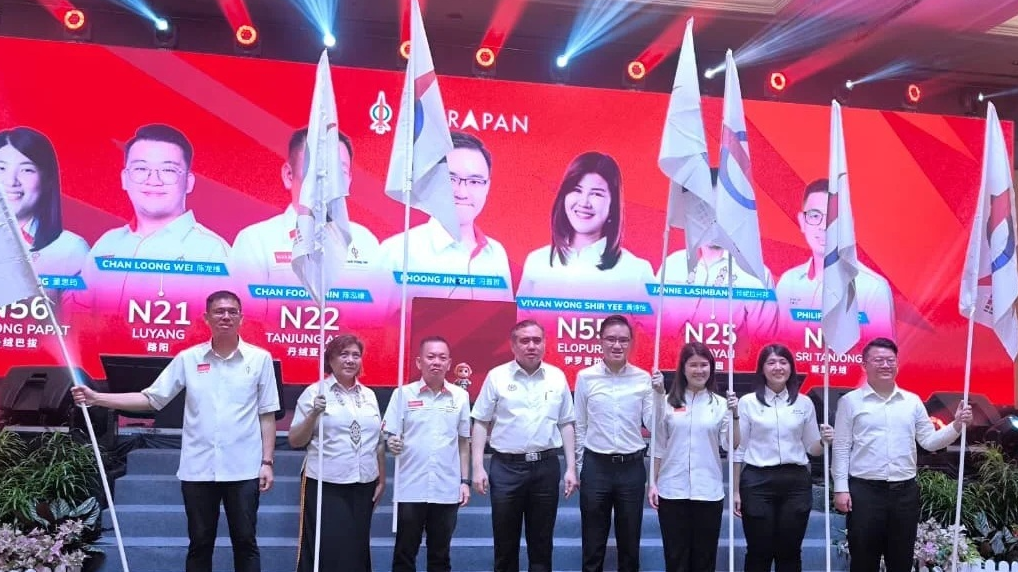
Pakatan Harapan was the biggest loser in the Sabah election, but the one that suffered humiliating defeat was the Democratic Action Party (DAP), which suffered a complete wipeout—losing all eight seats it contested and almost vanishing from Sabah. This is DAP’s most painful lesson: Chinese votes can come, and they can also go. When a tropical whirlwind hits, what seemed like deep-rooted “safe seats” can be uprooted entirely. Chinese voters gave their support to Parti Warisan. For example, in Luyang—where the Chinese voter ratio is the highest—Warisan’s candidate received more than double the votes of DAP’s candidate. All eight seats contested by DAP were lost by huge margins. Even state chairman Datuk Phoong Jin Zhe, vice-chairman and deputy federal minister Datuk Chan Foong Hin and Sandakan MP Vivian Wong suffered crushing defeats with almost no resistance. Losses of this magnitude cannot be blamed on luck or strategy. They amount to being abandoned. DAP has only itself to blame. Ever since joining the Unity Government at the federal level, it has grown increasingly distant from the Chinese community—unable to hear their voices and even when it does hear them, it fails to take them in. The greater the Chinese community’s expectations of DAP, the greater their disappointment. Many policy distortions—from economic participation to educational imbalance—have not been corrected since DAP came to power; instead, they have worsened. For example, the Unified Examination Certificate issue has dragged on like “a dog barking at a speeding train,” drifting further away; popular university courses are increasingly closed to Chinese students; and DAP now speaks the language of the bureaucracy. On matters involving erosion of ethnic rights, Chinese community in Sabah shares the same sentiments as Chinese nationwide—their disappointment toward DAP has deepened into dissatisfaction. Meanwhile, Sabah Chinese’s strong sense of local identity has not been respected by DAP. Senior DAP leaders from Peninsular Malaysia who went to Sabah to campaign even mocked Sabah’s local sentiments, criticising the “Sabah for Sabahans” ideology while defending the appeal by federal government over the 40% net revenue entitlement. However, on Sabah’s backward basic infrastructure—its water, electricity and roads resembling Third World standards, and a poverty rate ranking second-highest in the country—DAP, as part of the government, offered only lip service and no concrete plans for improvement. Sabah Chinese watched the DAP’s campaign team arrive with a “Malayan government” mindset, pointing fingers at Sabah and asking Sabahans for support—yet unable to give any convincing reasons, and doing so with arrogance. How could Sabah Chinese possibly vote for them? Furthermore, when in opposition, DAP held high the banner of anti-corruption. Any hint of corruption would trigger loud calls for arrests—this was one of DAP’s trademarks. But when the GRS state government was collectively mired in corruption allegations, DAP kept silent. When the Prime Minister Datuk Seri Anwar Ibrahim’s senior political secretary, Datuk Seri Shamsul Iskandar Mohd Akin, was implicated in corruption, some in DAP even defended him. On the eve of polling, the dramatic arrest of Albert Tei by the […]
2 w ago
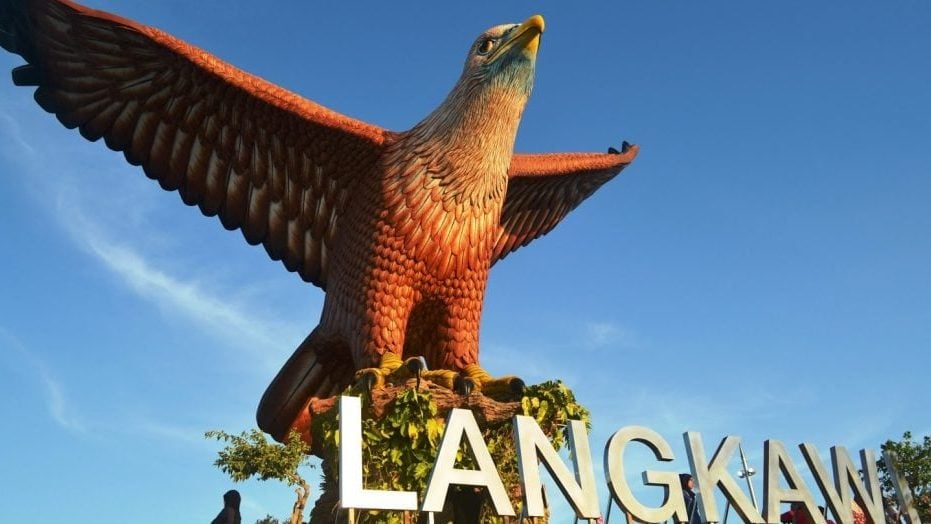
A friend from Sarawak had just returned from a family holiday in Langkawi. When I asked how the trip went, his response was tinged with disappointment. For a place once celebrated as the “Jewel of Kedah,” Langkawi seems to have lost much of its former shine. This is very sad indeed. I used to visit Langkawi at regular intervals in years gone by. I like Langkawi actually and each visit was pleasant and enjoyable as the island has a fair bit to offer even the most demanding local visitors. Otherwise, who would bother to make return trips, as I had done so. Now, I think I can understand why my fellow Sarawakian was disappointed with his recent Langkawi visit. This negative feedback is not new, it’s actually quite common in recent times and there are valid reasons for it. I believe that the Langkawi of 20 years ago felt more authentic, carefully cared for and genuinely welcoming. The Langkawi of today, while still beautiful, often struggles with maintenance issues, over-commercialisation and a lack of renewal. Over the years, the island appears to have slipped into a state of neglect. Many visitors now speak of fading infrastructure, poorly maintained public amenities and tourist attractions that feel dated or underwhelming. In essence, the disappointment my friend felt was not just about one lacklustre holiday, but about what Langkawi could have been had it continued to evolve. The island’s natural beauty is still there, but beauty alone is no longer enough. A once-iconic tourist destination is now at a crossroads, waiting for the bold vision and sustained investment needed to restore its allure. Above all these structural issues lies one key factor why Langkawi is no longer what it used to be and what it should be – the island resort has begun to bear the imprint of a more conservative, Islamically oriented leadership in Kedah under PAS. While PAS officials insist they are safeguarding moral values and the island’s cultural integrity, critics argue that certain policies and public postures are chilling parts of Langkawi’s formerly open, cosmopolitan tourist identity. Many of us will remember the tit-for-tat between Tourism Minister Datuk Seri Tiong King Sing and Kedah Menteri Besar Datuk Seri Muhammad Sanusi Md Nor not too long ago. That episode is still fresh in my mind as it clearly illustrates the fall from grace of what was once Malaysia’s premier tourist destination. It started with the claim by the Tourism Minister that some government representatives in Langkawi have allegedly behaved like “little Napoleons” by harassing tourists on dress codes and alcohol usage. Tiong revealed that tourists have complained to his ministry about the abuse of authority by certain government personnel in Langkawi. “They are not Muslims, but even buying alcohol and wearing shorts are prohibited. Hence, the Kedah menteri besar needs to explain everything,” he said. Sanusi has denied Tiong’s claims and was quoted by a national news portal as saying that the Kedah government would not investigate the matter “as the […]
2 w ago
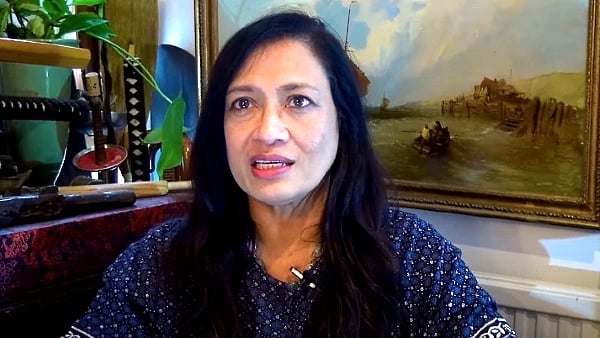
The recent appointment of Federal Court judge Ahmad Terrirudin Salleh to the Judicial Appointments Commission (JAC) has sparked questions that go far beyond individual personalities. On November 19, the lawyer and former Malaysian Anti-Corruption Commission (MACC) chief, Latheefa Koya, called the appointment “simply unacceptable,” citing unresolved allegations against Terrirudin that suggest possible interference in the judiciary. It must be stated that these allegations are still not proven. While the controversy may appear technical or internal, it touches on fundamental issues of governance, accountability, and the rule of law. These are issues that affect every Malaysian. Latheefa’s concern stems from a purported leak of JAC meeting minutes last May, in which a now-retired judge allegedly accused Terrirudin of judicial interference. Although the authenticity of the leak remains unconfirmed, the allegations were serious enough to provoke calls for a royal commission of inquiry or tribunal. To date, the only formal action taken has been a police investigation into the source of the leak and a probe against the news portal Malaysiakini for asking related questions—a move that has raised concerns about press freedom. At the heart of Latheefa’s warning is a simple question: were the allegations investigated at all? If so, what were the outcomes? The government’s silence on this matter has significant implications, far beyond the immediate controversy. In addition, the Bar Council has questioned the lack of transparency over Terrirudin’s appointment as “troubling” and more importantly, the Edge reported that the Negeri Sembilan ruler, Tuanku Muhriz Tuanku Munawir, has also thrown his weight behind the objections raised. Here are ten factors to show that Latheefa’s concerns should be taken seriously. Judicial integrity is at stake The judiciary must operate independently to maintain fairness and impartiality. Appointing a judge under a cloud of unresolved allegations risks undermining the credibility of the entire system. Transparency in governance Without answers about investigations, the public is left uncertain whether officials are acting in the nation’s interest or shielding insiders from accountability. Checks and balances could be weakened The JAC exists to ensure that judicial appointments are fair and merit-based. If appointments are influenced by political considerations or unresolved allegations, this essential oversight is compromised. Potential abuse of power Allegations of interference in the judiciary suggest that some officials may exert undue influence on legal outcomes, and this presents a dangerous precedent for the rule of law. Media freedom is under threat The investigation against Malaysiakini demonstrates that asking probing questions about judicial integrity can provoke legal action, discouraging journalists from pursuing stories that hold power accountable. Public confidence in leadership Prime Minister Datuk Seri Anwar Ibrahim’s government has yet to address these concerns publicly. Continued silence can erode the citizens’ trust in both government and judiciary. These will raise doubts about their commitment to justice. Impact on future appointments Ignoring unresolved allegations sets a dangerous precedent that controversial figures may hold high office without scrutiny, thus potentially normalising questionable appointments. Rule of law vs. political quotas Terrirudin’s appointment under the prime minister’s […]
2 w ago
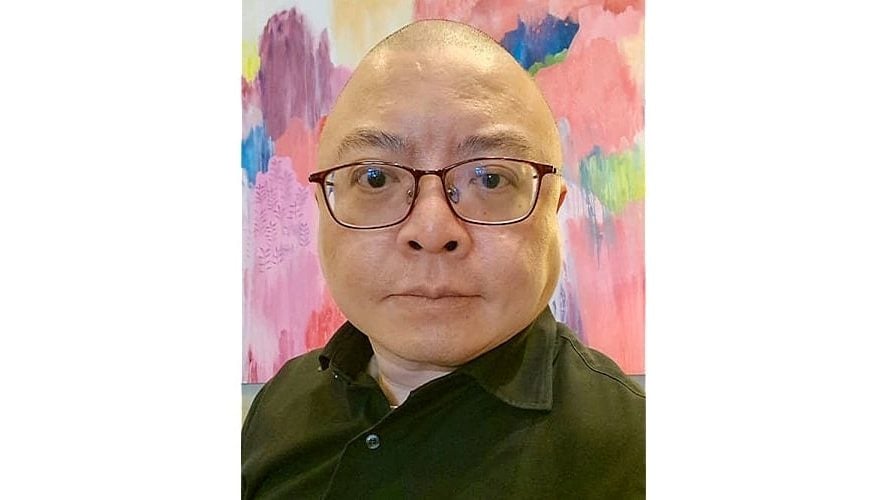
The recent exposé by The Business Times on the Prince Group’s opulent façade in Singapore — from a Mercedes-Maybach with the “5555” plate, to a yacht moored off Sentosa Cove, to a luxury clubhouse at Ardmore — has raised yet another red flag on the scale, scope, and sophistication of transnational corruption in Southeast Asia. While these revelations should concern every ASEAN member state, they carry a particular warning for the Philippines. Small countries with porous political-business networks often underestimate how easily ill-gotten wealth travels across borders, finds safe harbour in financial hubs, and returns as political influence. The Prince Group saga is a textbook example of how money can be laundered into legitimacy. Singapore’s role as a global financial centre means it is constantly exposed to such flows, and the Monetary Authority of Singapore has long acknowledged this vulnerability. Yet, what should truly alarm Manila is the pattern: when corruption becomes transnational, its political effects eventually return home. The Philippines is now grappling with a Peso under pressure, not just from foreign exchange volatility but from the corrosive perception that corruption remains endemic. Every major scandal — procurement fraud, agricultural smuggling, pandemic-era misuse of funds, or unexplained wealth among public officials — weakens the Peso further. Currency markets do not merely react to macroeconomic fundamentals; they respond to the trustworthiness of institutions. When that trust erodes, the currency flinches. This is why the Prince Group affair is not merely someone else’s scandal. It is an early warning indicator of how illicit networks can entrench themselves in jurisdictions that appear respectable, then influence political actors across borders. The Philippines, with its long history of political dynasties, factional rivalries, and private-sector capture, is precisely the kind of environment where such networks can thrive — silently, steadily, and in plain sight. The central question now is whether Manila fully appreciates the regional dynamics at play. Prince Group’s high-value assets in Singapore signal two uncomfortable truths. First, the group has access to enormous capital and knows how to mask its origins. Second, Singapore’s regulatory ecosystem — no matter how robust — cannot intercept every inflow when illicit actors are supported by powerful backers abroad. This combination should be deeply unsettling for Philippine policymakers who are already contending with domestic corruption allegations. For the Philippines, the risk is not simply that ill-gotten wealth will find its way into Makati condominiums or offshore accounts. The real danger lies in its political weaponisation. Unregulated capital can fund disinformation campaigns, manipulate markets, influence elections, and compromise regulatory bodies. Money with opaque origins almost always seeks influence with opaque intentions. ASEAN’s current environment only adds urgency. With geopolitical tensions rising, illicit groups often exploit strategic ambiguity. The Prince Group’s dealings — spanning Cambodia, Macau, and now Singapore — illustrate how individuals or networks can operate across jurisdictions with a veneer of legality while evading accountability back home. For a country like the Philippines, where political financing remains loosely regulated and patronage-based politics is entrenched, the entry of such […]
2 w ago
More